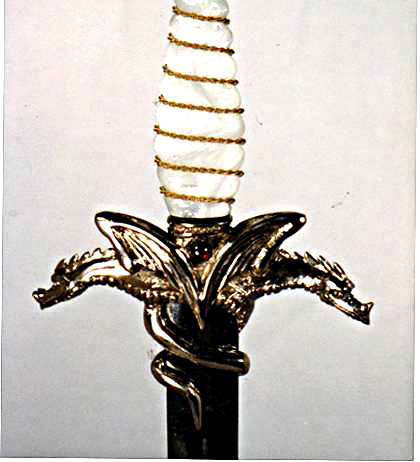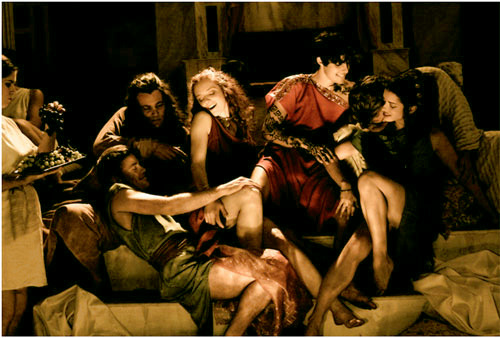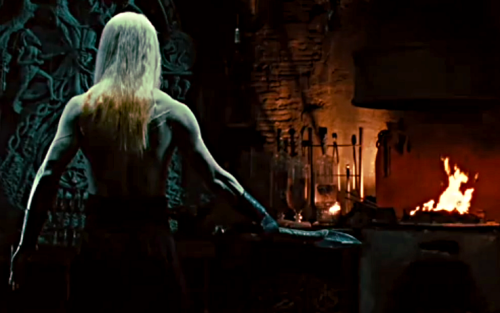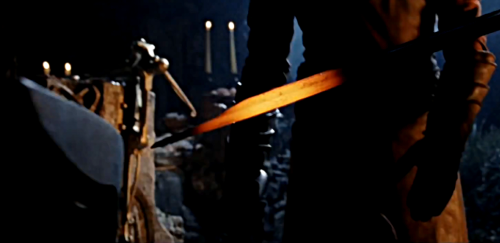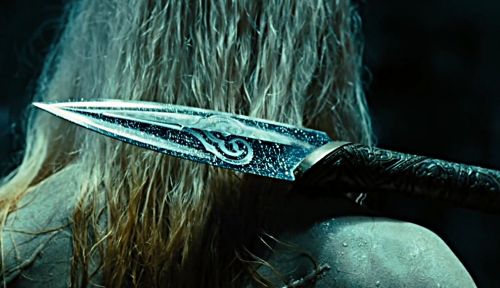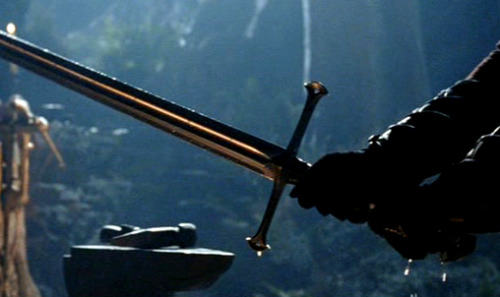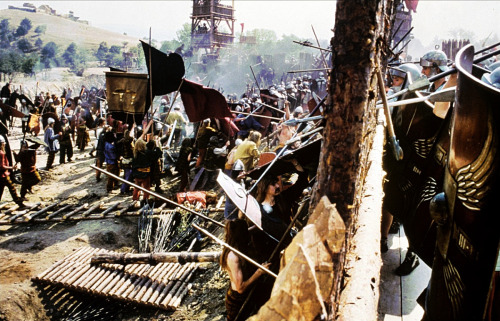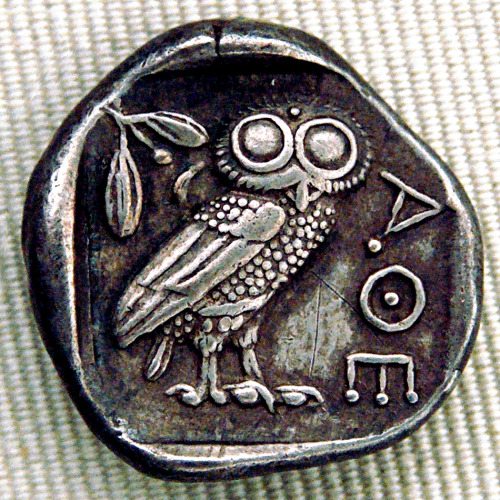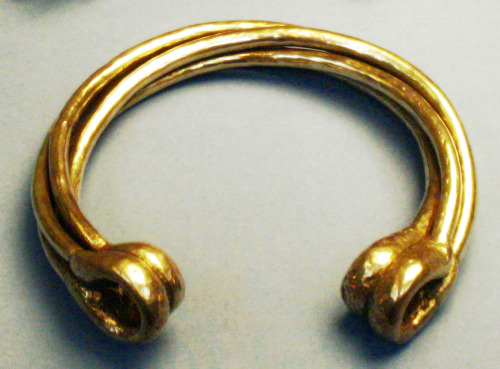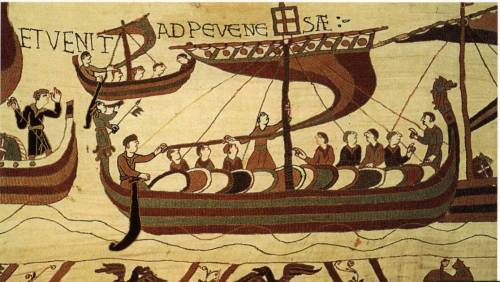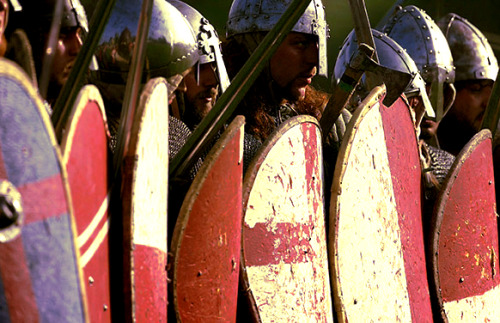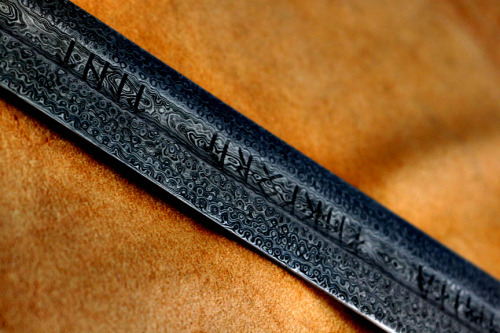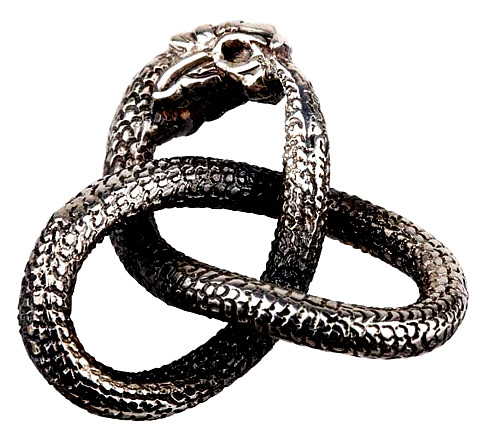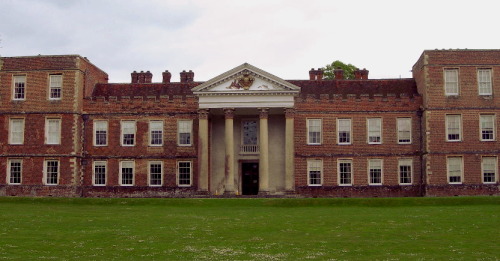#norman conquest
The Sacred Twenty Eight: the Noble and Most Ancient Houses of Mulciber, Rosier and Malfoy. (3/3)
The Malfoys, to their dismay, were not even deemed worthy of an insulting gift. Pretenders, the Mulcibers called them and blithely dismissed them as being generally unworthy of a gift. Their lineage was not old enough - even though they could trace their line back all the way to the Merovingian dynasty at least (more than several other families they could name) - and they had no dedicated family craft or magical art to speak of. That they had risen from obscurity and become one of the most powerful families in wizarding Britan seemed to matter very little to the Mulcibers. Parasites, said the Mulcibers, for the Malfoys thrived on the little games people in power played with each other and not on any magical skill of their own.
Worse still, the Malfoys were rather new when one compared them to the other families of the Sacred Twenty Eight. They could not trace their family line back all the way into legend as so many of the other families could - indeed they did not waste their time brooding over long family trees of dubious veracity. They did not claim divinity as the Lestranges did, nor did they claim to be descendants of famous and powerful sorcerers and sorceresses. No. They wore their badge of services rendered to William the Conqueror with pride - and wizarding society bought it for the most part. After all, not many could boast of having rendered services of a personal and delicate nature to the country’s monarchs.
The Mulcibers, however, proved to be a tiresome spanner in the works of the Malfoys’ carefully crafted story. Unspecified services to William the Conqueror were nothing to boast of, they said. Sailing with William the Conqueror was no great deed in itself. For all they knew, the Malfoys might have been William’s hangsmen - in fact it was quite likely, given the Malfoy family’s reticence on the matter of the nature of these services. Neither were services rendered to Her Majesty Queen Elizabeth the First of England enough to make the Malfoys worthy in their eyes. Politics, the Mulcibers believed, was a game anyone with a modicum of sense could play and was not enough to make the Malfoys exceptional in their eyes.
Thus it was that the Malfoys had to remain content with those artifacts they seized from wizards indebted to them - need we mention the Weasleys were among one of the unlucky families to have lost their prized heirlooms to the Malfoys (forever a sticking point between the two families)? - all the while aware that families like the Blacks and Lestranges were quietly snickering at them when their backs were turned. Aware and unable to do anything, for a gift is a gift and cannot be forced out of the giver. The snubbed Malfoys simply had to make do with a second rate (but nonetheless very beautiful) family sword. Not forged by the Mulcibers.
Some things, the Malfoys acknowledged, to their shame, could not be bought with money.
Post link
The Sacred Twenty Eight: The Noble and Most Ancient Houses of Mulciber, Rosier and Malfoy. (2/3)
Imagine the chagrin, then, of the Rosiers when their turn to receive a gift came round and they found themselves slighted by the choice of gift. Yet as the Mulcibers were quick to remind them in delicate terms, if it had not been for a favour they owed the Rosiers, the Mulcibers might have never chosen to give them anything at all. But since they were required, as a point of honour, to do so, they chose their gift very carefully indeed and made sure the Rosiers knew precisely what they thought of them.
A throne, they gave the Rosiers. To be precise, a crudely made throne of iron sheets, nailed together in the most rough fashion possible. It looked well enough - the Mulcibers could let their aesthetic sensibilities only be offended so far - but it was no crafty sword or delicate objet d'art. The message was quite clear. The Rosiers were extravagant, aye, but extravagance would never cover up their true nature - that is to say, a nature of the basest kind.
To add salt to the wound, the throne had no magical value at all. It was precisely what it seemed - an ordinary iron throne - and one that a Mulciber might have sold to a vain muggle nobleman for an exorbitant price. Of course, the Rosiers could not say a thing, for a gift is a gift and to shove it back in the Mulcibers’ faces when they had received it with such pomp and circumstance would come across as ungracious and boorish. Heaven help them, the Mulcibers already thought so poorly of them, it would hardly do to encourage the rest of the wizarding world to think of them in the same way.
So the Rosiers kept quiet and fumed quietly in their boots, cursing their ancestors for having had the misfortune to be imprudent, foolish and vain, and above all, for incurring the scorn of the Mulcibers.
Post link
The Sacred Twenty Eight: The Noble and Most Ancient Houses of Mulciber, Rosier and Malfoy (1/3)
It is no mean feat to deliver a well-placed insult to one of the Pureblood families who make up that exclusive group known as the Sacred Twenty Eight.
To insult twoof these families and get away with it - well that takes extraordinary talent, particularly if the families concerned happen to be the Malfoys and the Rosiers. Both are proud families, rarely forgiving perceived slights against them.
Presumptious, the Mulcibers called them. They may have all sailed together with William the Conqueror, but the Mulcibers could tell you a thing or two about them. The Rosiers might be an old family, with a geneaology going all the way back to the early days of the Roman empire, but they were most assuredly Not Respectable. For one, they had boughttheir citizenship from Livia Augustus (the Mulcibers had earnedtheirs through extraordinary services rendered to the empire). For another, the Rosiers had always been involved in some scandal or the other - orgies, selling cases for pennies, plenty of by-blows, cheating at cards and all that sort of thing. Not at all the nobles they made themselves out to be.
The Malfoys, of course, were risible in their claim to greatness. The Rosier family, at least, was of note. The Malfoys were originally an obscure family, without renown at all, who won their lands in Wiltshire for services of a Most Delicate Nature rendered to the Conqueror. Services that almost certainly had nothing to do with prowess on the battle field or an ability to craft useful magical artifacts.
For that was the Mulcibers source of pride. They were an old, old family (old enough in lineage to rival even the Ollivanders who traced their line all the way back to the year 327 B.C.) of smiths , potioneers and alchemists whose metalworks were well known across the wizarding world even in the days when Rome was still a republic. Their fame was so widespread that even the muggles knew of the Mulcibers, but knew of them only as owners of excellent smithies with the best weaponry known to mankind. For wizards, however, the Mulcibers were far more than mere smiths (or even descendants of Vulcan as it may be) for to own an artifact forged by a Mulciber was the seal of highest approval, which stamped the wizard as one of truly great stock. One had arrivedwhen one was finally deemed worthy of having something crafted by a Mulciber.
Naturally, these artifacts were not lightly given to all and sundry. They could be purchased at a high price - but these were generally held to be of less value than those creations given as gifts to wizarding families. For each gift was made specifically for that family, drawing on what the Mulcibers thought of the family and how they thought they could aid them most. For the Lestranges, thrice-forged swords with runic inscriptions both for warding their wielders from harm and for killing effectively; for the Blacks, unmentionable artifacts (because of their highly dark nature, muttered their detractors); for the Notts, a distaff which spun pure gold wool; for the Prewetts, torcs which rendered them invulnerable to all but the darkest of dark curses; and so on and so forth. Even the Weasley family had once been given three daggers, which they had long since lost to various debtors.
A Mulciber-forged artefact was a badge to be worn, a trophy to be displayed. A sign of judgement and approval, more so than a list made by a crabbity old man.
Post link
The Sacred Twenty Eight: The Noble and Most Ancient House of Lestrange
Four heirlooms of the Strangers; powerful warlocks the muggle Gauls called sons of Toutatis. A death coin for enemies, a torc for luck, a sword for immunity and a dragon’s infinity knot.
There is little that the two branches of the Lestrange family agree upon - the longstanding disagreement between the French and the English line stems from a feud in the early 11th century which was never resolved satisfactorily. In fact, the only thing they do agree upon is their divinity. The Lestranges, unlike most venerable wizarding families, trace their descent to a wandering family of warlocks in Iron Age France whom the Gaulish tribes came to worship as protectors of the tribes and in time, war gods. (The other thing both lines of the Lestranges agreed upon was that blood was awfully nice and one could never have too much bloodshed.)
The feud between the two branches is a complex matter. It began in 1066 A.D. when the Lestrange patriarch died, leaving behind two sons and a tidy amount of gold, lands and peasants to be divided between them. His will was never found (destroyed, claimed each of the sundered lines of the Lestrange family) and the two were left to divide his wealth between them as they saw fit. It is here, in their telling of their history, that the stories of the English and the French Lestranges diverge and each side claims theirs was the truest, they were the most wronged.
The French Lestranges tell a story of greed and avarice. The younger, ambitious and hungry for a life far beyond his means, demanded he be given the lion’s share for he had plans that his elder brother lacked. His elder brother refused, quite rightly, but the younger was not content to let the matter lie. The younger Lestrange rallied a motley army of serfs,household knights and mercenaries to wage reckless war upon his elder brother. This proved to be his undoing for his brother held the stronger claim to the lands and wealth and the greater part of the family’s forces rallied to him. Thwarted, humiliated and bankrupted, the younger Lestrange - they claim - fled with his family on William’s ships to England with several priceless family heirlooms (stolen, not their own, ought to be returned), to escape the hand of justice which truly ought to have been their inheritance.
The English Lestranges tell a very different story altogether. In their tale, the elder Lestrange promised his brother the share of money their father would have wanted him to have. But when the time came to divide the wealth, the elder son turned his back on his brother and declared that this father would have never left the younger the share he demanded as his birthright - yea, would not have left his younger son any money at all if not for the tenderness of his heart. Greedy, the elder called him, irresponsible, frivolous, and so speaking, cast his brother out with nothing to his name.
Thus cheated of his inheritance, the English Lestranges claim the younger brother did what he could and attempted to rally the Lestrange fiefdom to his cause - failing only because they were niggardly cowards who lingered, tending their fields instead of fighting for him. Penniless and pursued by muggle bloodsuckers he fled with his family and came to England on William’s ships, with nothing but their clothes and some heirlooms which were theirs (not stolen, their own, made for them, owned by them). For their loyalty to William of Normandy and their prowess on the battlefield at Hastings, they were well rewarded and given a fiefdom of their own. This marked the beginning of the English line of the Lestranges.
The truth was such a complicated matter. Those who had looked into the matter, family biographers and the like, had ended up throwing their arms into the air in despair and given up - until finally they chose their sides by their proximity to each branch of the family. Those in France declared the French Lestranges wronged - the English dogs had stolen from them, ought to return the priceless goods stolen from them. In England, however, they sang a different tune: the frogs were penurious swindlers who had come by their just deserts when their brother had left, taking their most precious, most valued treasures, claiming it as his inheritance. Miserly swindlers who would cheat their brothers deserved as much.
As for the truth? Truth was cast to the wind - who knew what the actual truth was? History was, after all, nothing more than a set of lies those with power agreed upon.
Post link

The Mysterious Lady Aelfgyva-women in history(42/?)
The Tapestry of Bayeux (Tapisserie de Bayeux) is an impressive embroidered cloth (70 meters long, 50 centimeters tall – 230ft x 20in) and tells the story of the Norman conquest of England by William, duke of Normandy, culminating in the Battle of Hastings (1066). It is thought to be made quite shortly after the conquest, somewhere in the 11th century.
This fragment is the only fragment putting a woman at the center stage. It is one of the most intriguing parts of the tapestry. It portrays a woman confronted by a tonsured cleric, who is touching her face; it is not clear if it is out of anger or affection. Above the scene, the inscription reads: Ubi unus clericus et Aelfgyva - Here a certain clerk and Aelfgyva. Since it is the only part of the tapestry that shows a woman on the center stage, and one of the few women on the tapestry, her role in the episode must have been viewed by the artist as significant.
Historians are unsure about who this woman is. Often it is thought she is queen Aelfgifu-Emma, the mother of King Edward the Confessor. Other historians, like Freeman, state that Harold might have had a sister, who accompanied him in his ill-fated mission. More recently, it has been argued she is Aelfgifu of Northampton, mistress of Canute the Great and mother of his sons.
The story of Aelfgyva is an example of how women are often forgotten and lost in history: overlooked in stories of men, their agency taken away. As Gloria Steinman said: Women have always been an equal part of the past. We just haven’t been a part of history.
McNulty, J. Bard. “The Lady Aelfgyva in the Bayeux Tapestry.” Speculum, vol. 55, no. 4, 1980, pp. 659–668.




